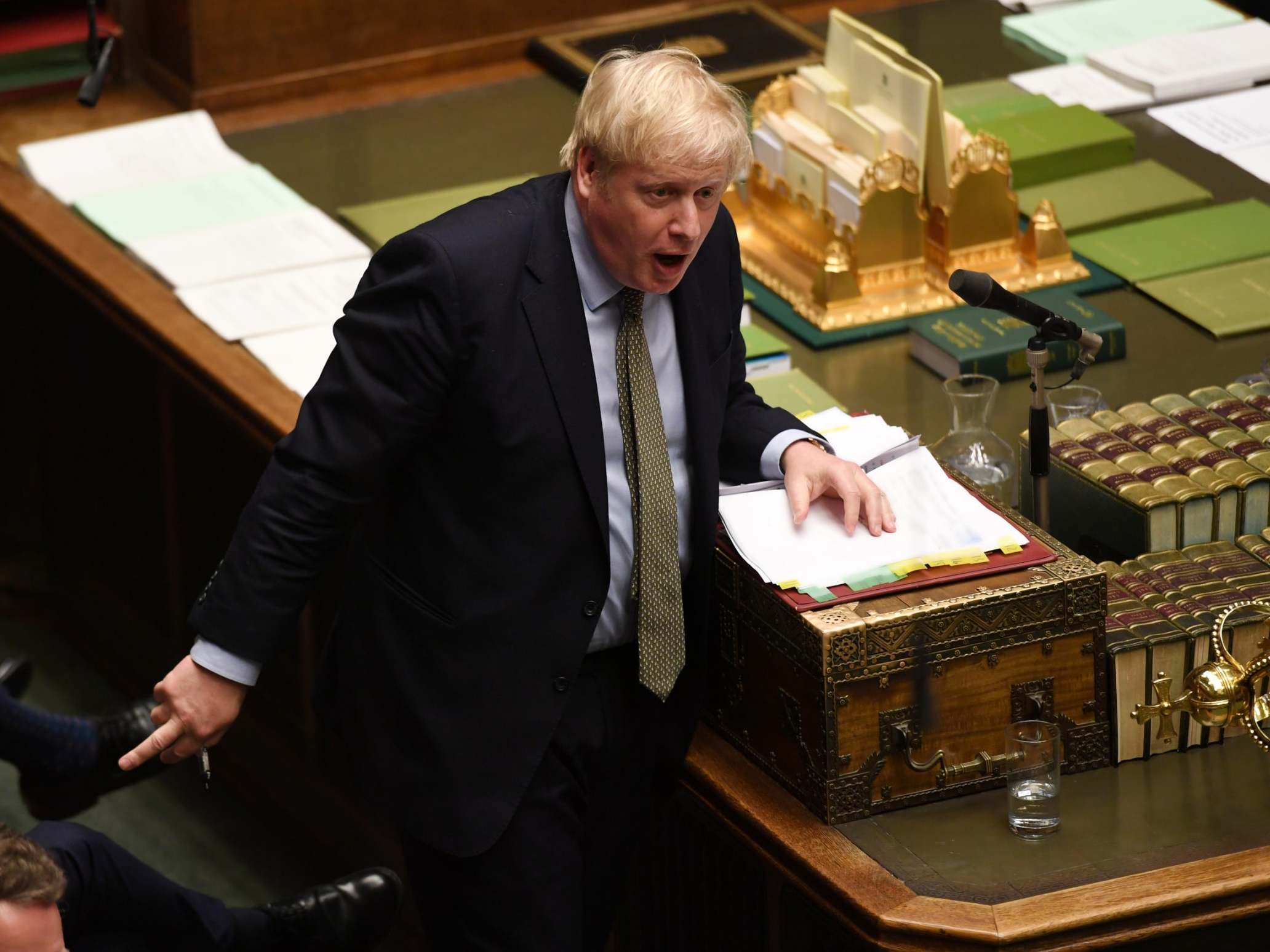Boris Johnson's Brexit timetable does not give enough time for full trade agreement, Michel Barnier says
Chief negotiator sets out red lines for ‘basic agreement’ and says UK will have to agree to ‘level playing field’ if it wants access to European markets
Your support helps us to tell the story
From reproductive rights to climate change to Big Tech, The Independent is on the ground when the story is developing. Whether it's investigating the financials of Elon Musk's pro-Trump PAC or producing our latest documentary, 'The A Word', which shines a light on the American women fighting for reproductive rights, we know how important it is to parse out the facts from the messaging.
At such a critical moment in US history, we need reporters on the ground. Your donation allows us to keep sending journalists to speak to both sides of the story.
The Independent is trusted by Americans across the entire political spectrum. And unlike many other quality news outlets, we choose not to lock Americans out of our reporting and analysis with paywalls. We believe quality journalism should be available to everyone, paid for by those who can afford it.
Your support makes all the difference.Boris Johnson's Brexit timetable does not give enough time to negotiate a full trade deal between the EU and the UK, Michel Barnier has said.
Speaking in Stockholm on Thursday, the EU's chief negotiator said it would take longer than the 11-month transition period to negotiate a comprehensive relationship.
Instead, Mr Barnier said Brussels will "prioritise" and try to secure a "basic agreement" with the UK – with the EU's red lines being trade in goods, regulatory alignment, and fishing.
"If we want to agree on each and every point of this political declaration – which would lead to an unprecedented relationship – it will take more than 11 months," he said.
"So we are ready to do our best, to do the maximum, in the 11 months, to secure a basic agreement with the UK, but we will need more time to agree on each and every point of this political declaration."
He described the overall plan "covering everything from services and fisheries to climate action, energy, transport, space, security and defence" as a "huge agenda" and said the two sides "simply cannot expect to agree on every single aspect of this new partnership in under a year".
During a Q&A following the speech, Mr Barnier added: "Speaking about economy and trade, there will be no agreement without global agreement on trade for goods, the level playing field, and fisheries. I think I’m clear."
Mr Barnier also said that the agreement would have to include a framework for cooperation on issues such as climate change and the Middle East, as well as a "close security relationship".
He emphasised that Mr Johnson would have to sign Britain up to the so-called "level playing field", in which the UK would have to stay relatively close to EU rules, if it wanted access to European markets.
"If the UK wants an open link with us for the products – zero tariffs, zero quota – we need to be careful about what we call zero dumping," Mr Barnier said.

"If it is not the case ... the level of access for British products will be proportionate."
The public comments confirm what Mr Barnier has been telling officials privately since last year. In December, The Independent obtained a leaked recording of the chief negotiator telling a closed meeting of MEPs that it was "unrealistic" that a deal could be concluded within Mr Johnson's timetable.
Mr Johnson's Brexit deal includes the option of extending the transition period for two years beyond the end of 2020, but the prime minister says he will not do it – for fear of upsetting Brexiteers in his party.
This approach creates a sharp cliff edge for the country at the end of the year, with the possibility of the UK crashing out on WTO rules. Even if a "basic" deal is cut in time, covering some sectors, any businesses not covered by it would be hit.
Back in Westminster, No 10 appeared to be unaware of Mr Barnier's comments. Asked whether the UK was ready to walk away from talks if the EU insisted on prioritising fisheries and trade in goods in the early stages of any deal, Mr Johnson’s official spokesman said: “I don’t think the EU have set out any detail about how they plan to approach these talks.
“What I’ve heard the EU saying is that they are committed to reaching an agreement with the UK by December 2020. That’s what we will be focused on achieving. It was a positive discussion with Ms Von der Leyen yesterday and we are ready to begin those talks from 1 February.
“The EU have processes they have to go through. We fully understand that. We are ready to get going as soon as possible after we’ve left on 31 January.”

Join our commenting forum
Join thought-provoking conversations, follow other Independent readers and see their replies
Comments